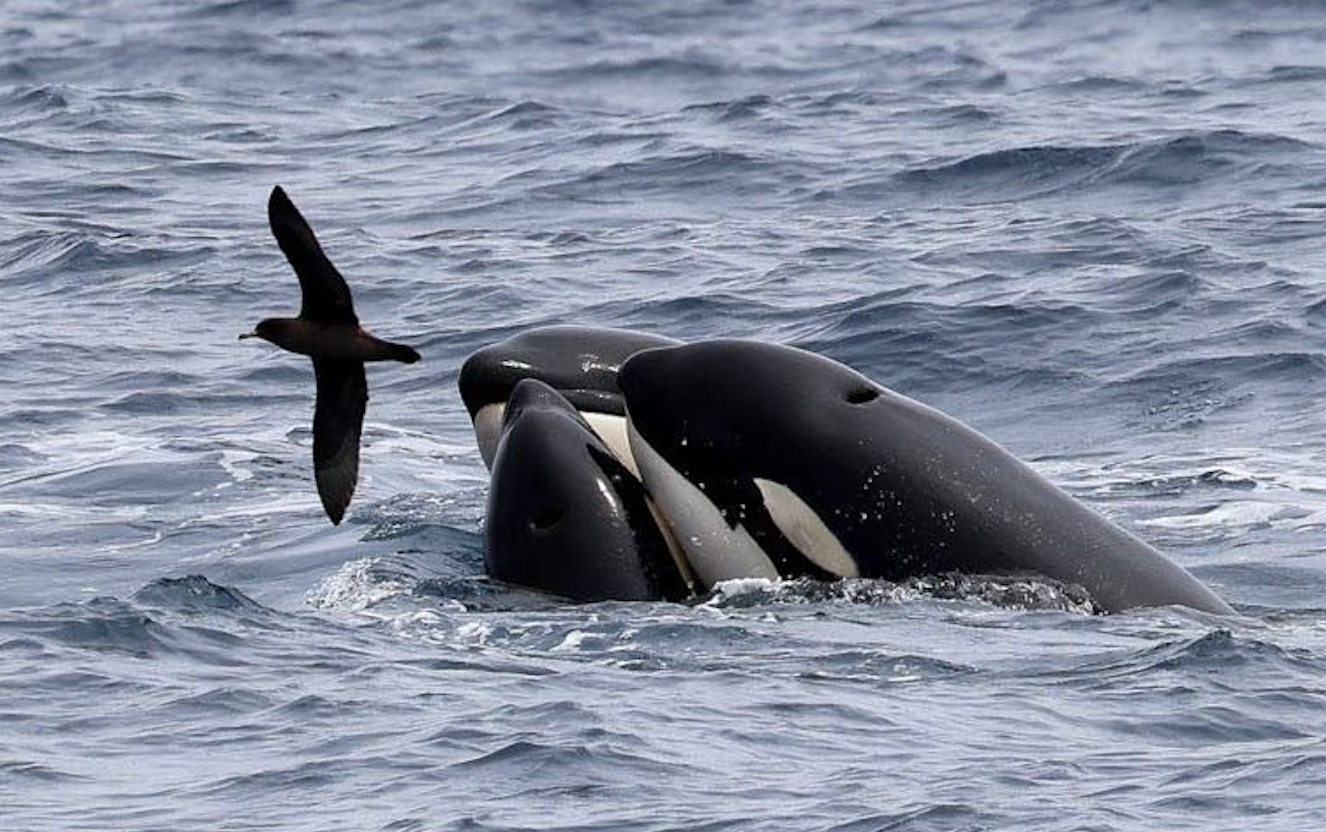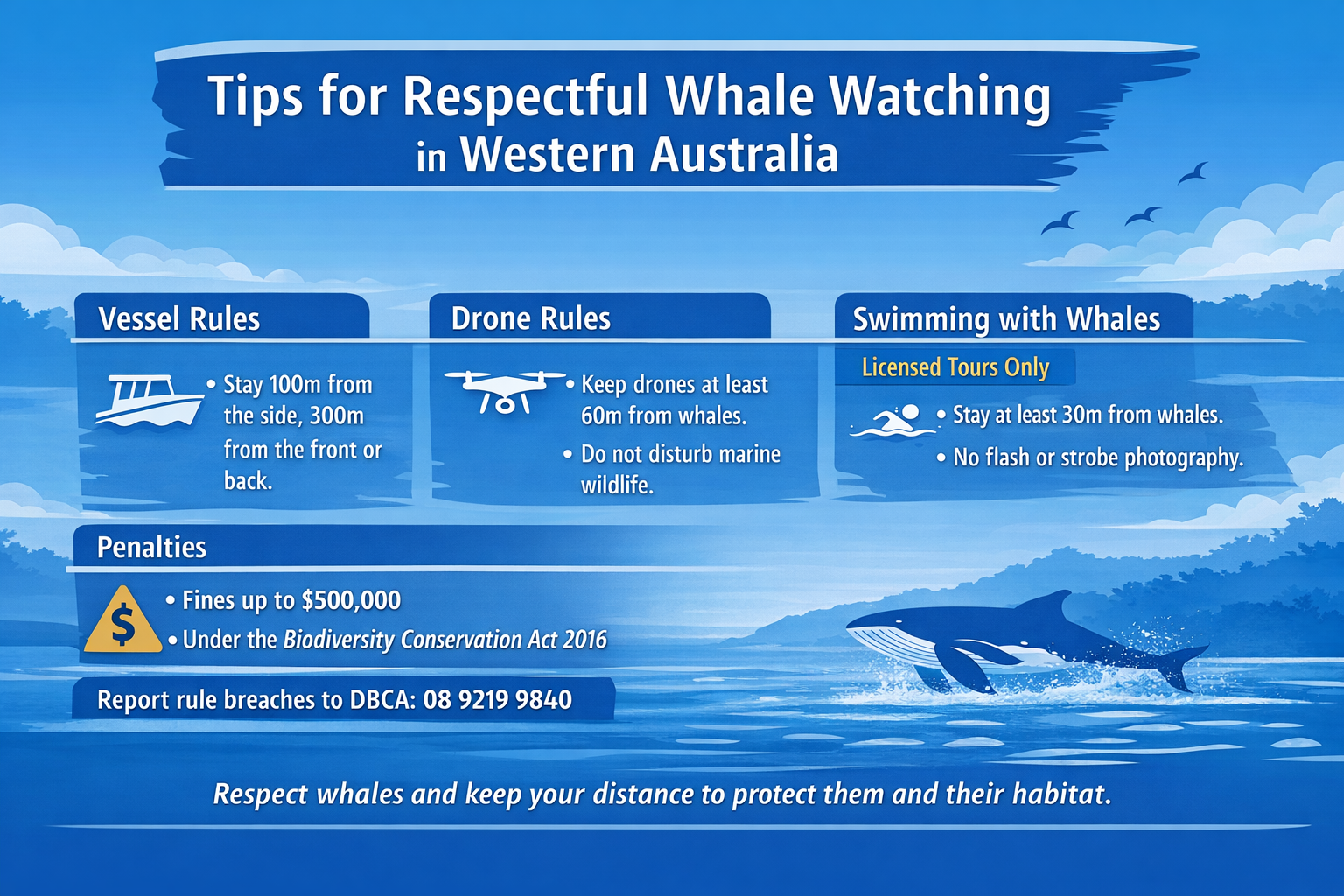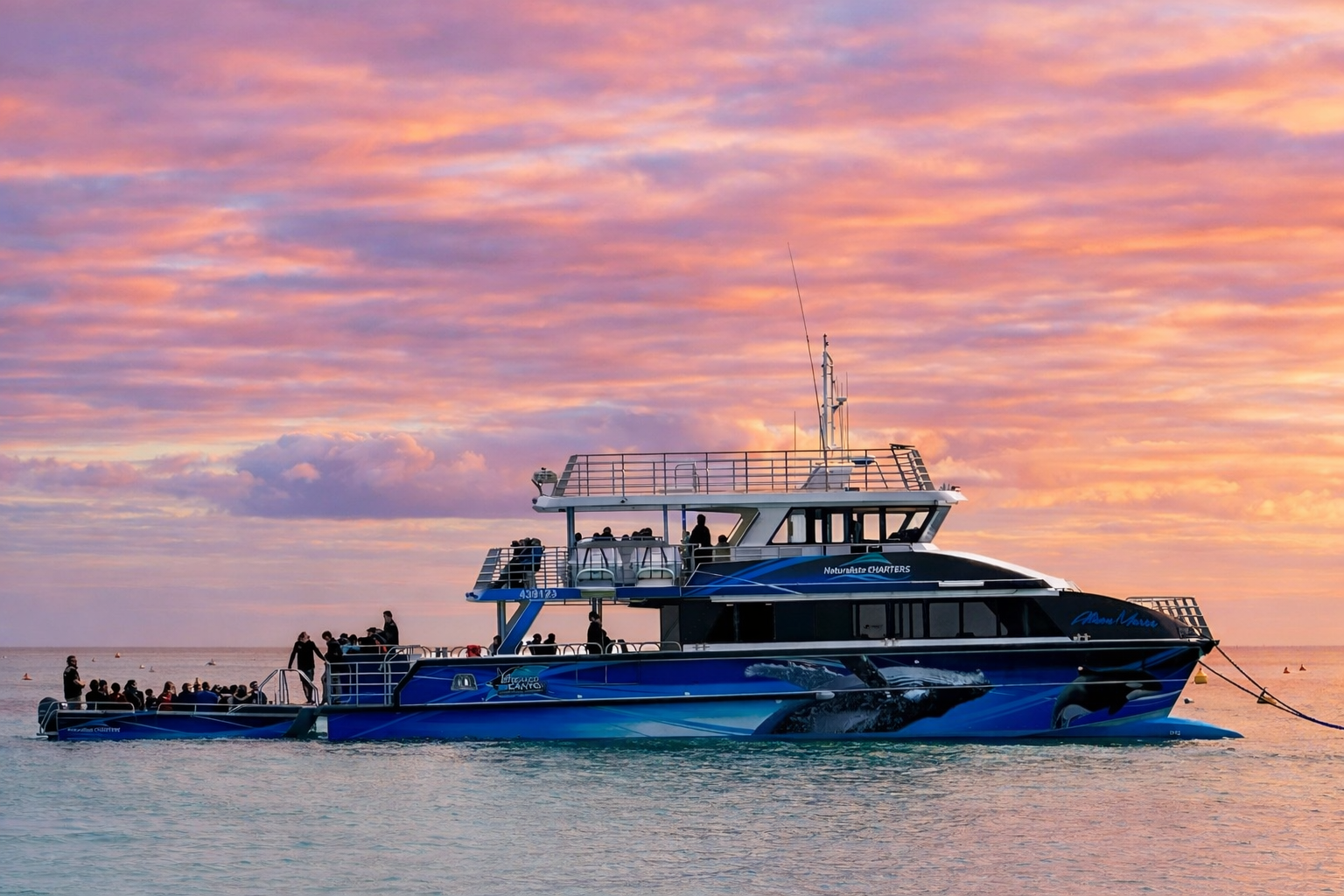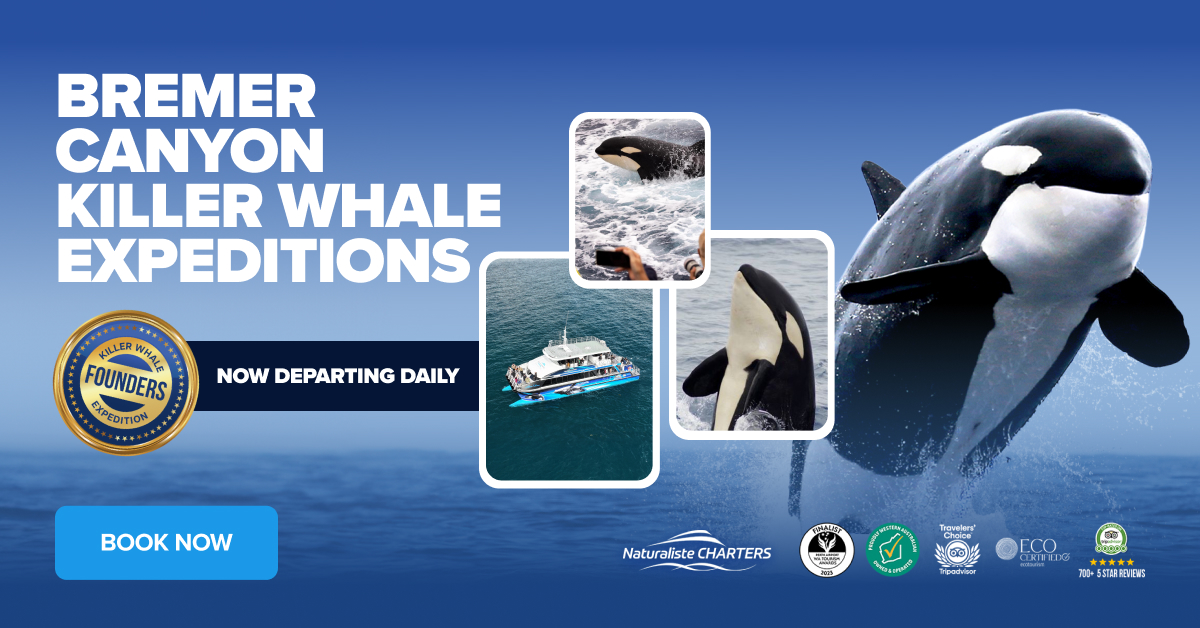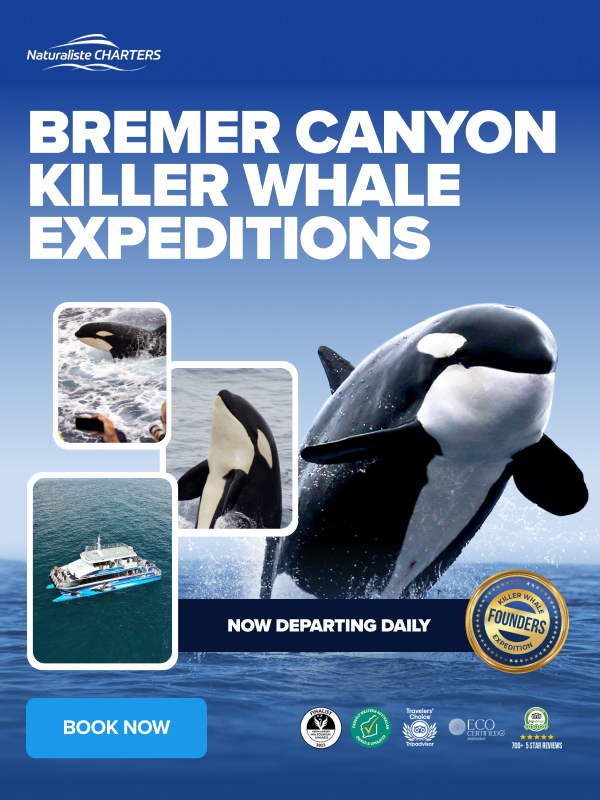Whale watching is truly one of life’s most unforgettable experiences. To see a majestic giant gliding effortlessly through the water is something that stays with you forever. There is a sense of wonder in watching whales and dolphins thrive in the wild, living freely in their natural environment. While whale watching is possible in many parts of the world, Western Australia stands out as one of the best. Its pristine waters and the sheer number of whales migrating along the coastline each year make it a world-class destination. Below you will find tips to help you plan the ultimate whale watching experience.
When can I see whales in Western Australia?
You can witness whales almost all year round in Western Australia, with different species appearing along the coast in distinct seasons. From December to April, Bremer Bay is home to the incredible Killer Whale (Orca) expeditions, where you can see the ocean’s apex predators in action. As winter arrives, the northern migration begins, with Humpback and Southern Right Whales filling the sheltered waters of Augusta from May to August. Then, from late August through to November, the southern migration brings whales into Geographe Bay, where Dunsborough offers the perfect opportunity to see Humpbacks, Southern Rights, and even the mighty Blue Whale.
Where can I see whales?
Beyond these areas in Dunsborough, Augusta and Bremer Bay, you can also spot whales from Perth, Rottnest Island, Geraldton, Exmouth, and Broome, making the Western Australian coastline one of the most diverse whale watching destinations in the world.
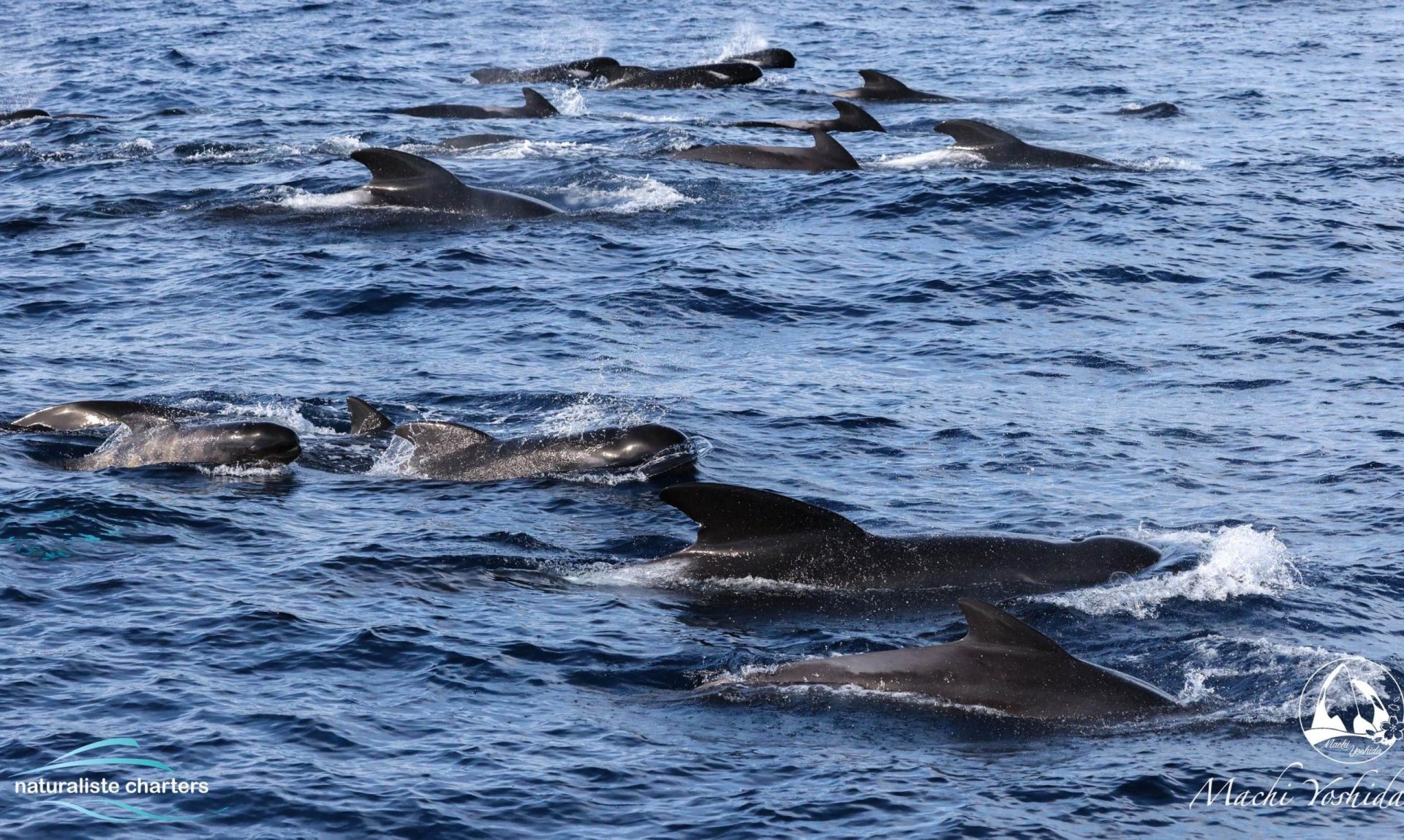
Bremer Bay – December to April
Species that can be sighted
- Killer Whales (Orca)
- Pilot Whales
- Various species of Dolphins
- Sperm Whales
- Pelagic Sea Birds
- Sea Lions
- Various species of Sharks
- Oceanic Sunfish
- Beaked Whales
Augusta – May to August
Species that can be sighted
- Humpback Whales
- Southern Right Whales
- Dolphins
- Seals
- Pelagic Sea Birds
Busselton & Dunsborough – Late August to mid November
Species that can be sighted
- Humpback Whales (and their calves)
- Southern Right Whales
- Blue Whales
- Dolphins
- Pelagic Sea Birds
Now that you understand how our season works I’m sure you’ll have some questions, so we have gone ahead and prepared some frequently asked questions and answers.
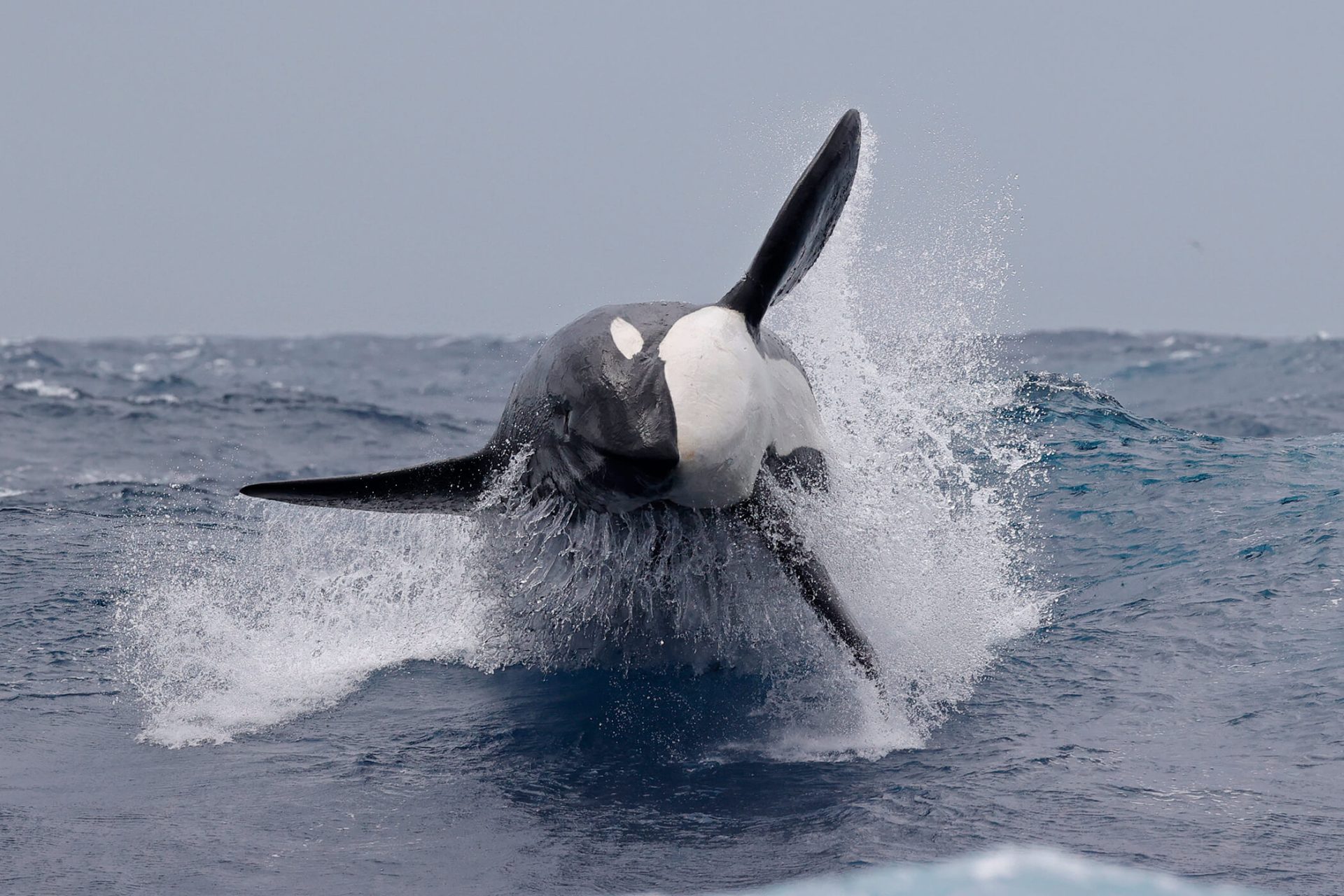
Bremer Bay – Killer Whale (Orca) Expeditions FAQ
How much does it cost to do an Orca Watching Experience?
The cost per person to join us on our Bremer Canyon Killer Whale (Orca) Expeditions is available to view on this link.
Can any age join a Orca tour?
There is a minimum age of 10 to join the Orca Expedition, this is due to safety precautions.
How long & what time should we be there for an Orca tour?
Allow 8-9 hours all up for your Orca watching experience. Please arrive at 7.45am for boarding.
Is food & beverages included?
Yes, morning tea, catered lunch and afternoon tea are all included and are provided by the local Bremer Bay Wellstead Café. Please advise us of any special dietary requirements when making your booking. You can also help yourself to tea, coffee and filtered water throughout the day.
Will I definitely see a Killer Whale?
With wildlife we can never 100% guarantee anything. What we can guarantee though is that on the small chance you may not get to see a Killer Whale, you would be welcome to join us on another expedition for free! Terms and conditions do apply.
What should I wear?
Dress comfortably! We are heading out on the Southern Ocean and you should be prepared for a mixture of conditions throughout the day. Flat shoes, a windproof jacket, a sun hat that won’t fly off your head, maybe have a back up beanie just in case! We always like to encourage our guests to bring a backpack with some extra clothing as It may end up colder than you anticipated or you might get a bit wet from rain or sea spray – just be prepared for anything!
Should I take sea sickness medication?
Yes, yes and yes. Please seek advice from your local pharmacist or doctor. We do highly recommend taking precautions, even if you think you don’t suffer from sea sickness!
Will it be rough?
Sea conditions change from day to day, and this is very much an adventurous expedition. It’s important to consider whether you feel steady on your feet and comfortable holding on to handrails when needed. Your safety is always our priority, and we only head out when conditions allow — but please keep in mind this is not a calm bay cruise, it’s an offshore adventure..
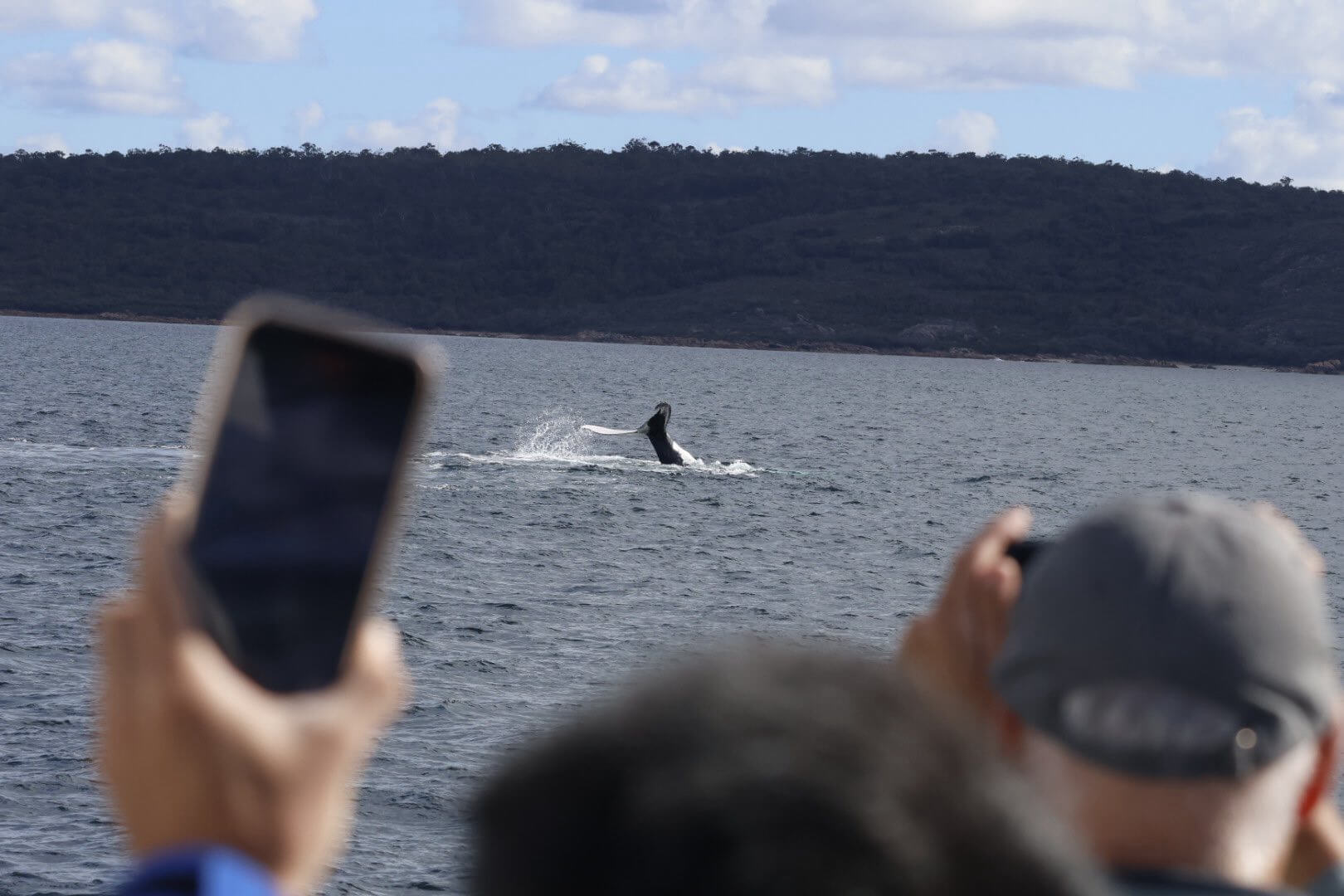
Augusta & Dunsborough Whale Watching Tours FAQ
How long is a whale watching tour?
Please allow 2 – 2.5 hours for your whale watching experience.
How often do tours depart?
Tours depart twice daily at 10am & 2pm for Augusta & Dunsborough.
Do you have accessible tours?
Our whale watching tours are via beach boarding from Dunsborough so are not wheelchair accessible unfortunately. Contact us direct to discuss your wheelchair accessibility requirements for our Augusta tours.
Is your whale watching tours family friendly?
Yes, our whale watching tours are indeed family friendly and suitable for all ages!
How much does it cost for a whale watching tour?
We have rates available for Adults, Over 65’s, Children (3-14) with a special rate available for a Family Pass (2a & 2c) and Infants (0-2) are free. Visit our bookings link to see our current rates.
What time are the whales more active?
People often wonder whether the morning or afternoon tour is better but there really is no real trend to be able to answer this, both the morning and the afternoon can be great, it just depends on the luck of the day and the weather, ocean conditions!
Will I experience sea sickness on my whale watching tour?
Our whale watching tours are conducted in either Flinders Bay or Geographe Bay and we rarely ever venture out to the deeper waters. This means that we generally experience calmer conditions which reduces your chance of experiencing sea sickness. It is always best to take precautions and take some sea sickness medication to be on the safe side, this can be purchased from a pharmacy.
How big is the whale watching boat?
The vessel is the Alison Maree and she is a 23 metre Catamaran that was purpose built in Western Australia for West Australian conditions. The vessel can hold up to 90 passengers and has air conditioning, indoor & outdoor seating, 2 toilets, baby change tables, filtered drinking water and has many vantage points for viewing and photographing the whales.
I am joining an Augusta Whale Watching tour, are there other things to do in Augusta, WA?
Augusta is a beautiful coastal town with any number of things to do. See our blog here: Top 8 Things to Do in Augusta for suggestions or visit our Augusta location page to search for accommodation or places to enjoy a meal. Your whale watching ticket gives you an opportunity to enjoy a 10% discount on the day of your tour at the Augusta Hotel and The Colourpatch restaurant.
Come and join us on an unforgettable Whale Watching Experience
We hope the information provided has helped with some of the questions you may have had. Even if you think a whale watching experience might not be right for you, I challenge you just to experience it at least once, there is a good chance you will be pleasantly surprised when you see whales and dolphins in the wild. If you are interested in joining an Orca Expedition or Whale Watching Tour, please don’t hesitate to contact Naturaliste Charters on 08 9750 5500 or visit their website to find more information and book your experience. We look forward to welcoming you on board.

